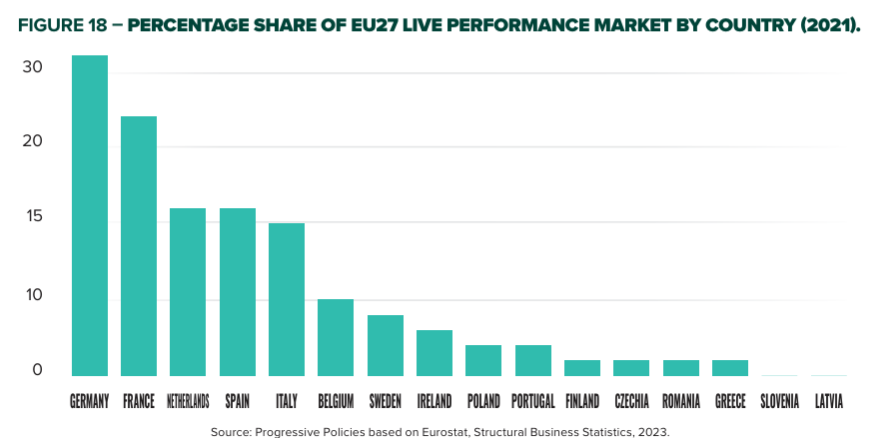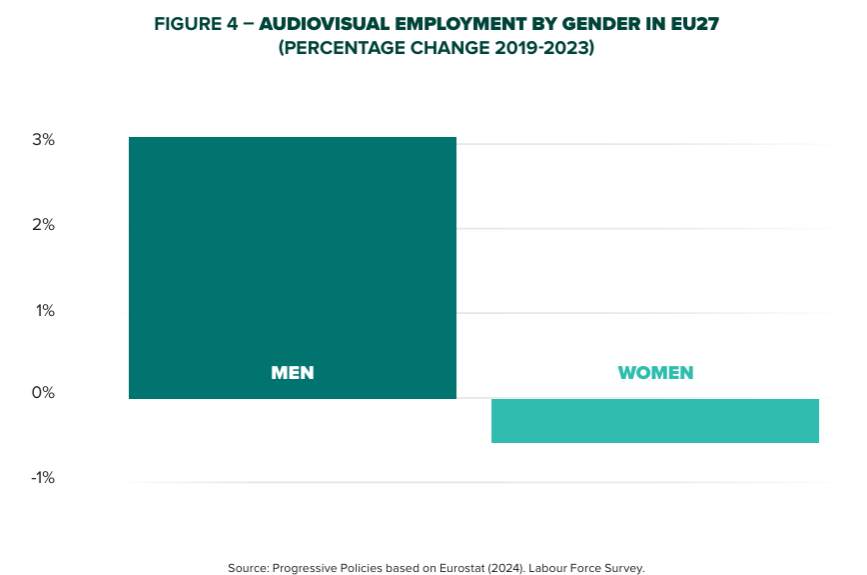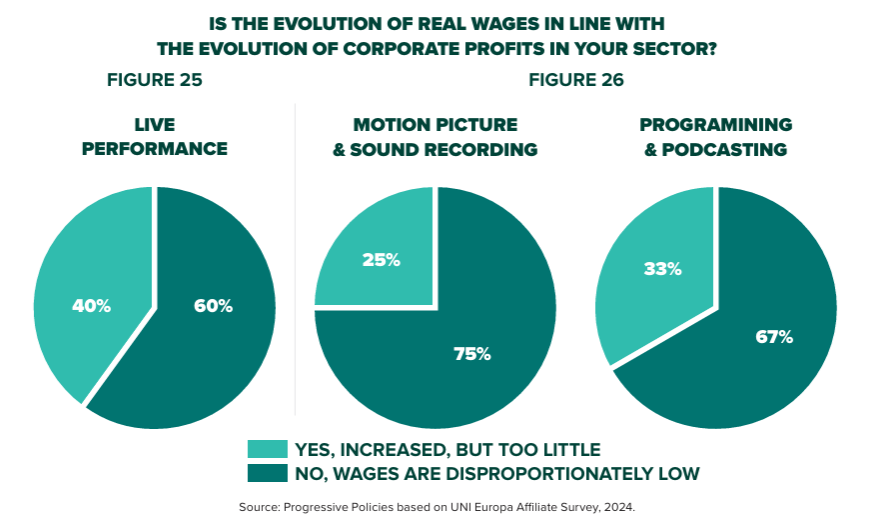The COVID-19 pandemic has permanently reshaped Europe’s cultural industries, leaving behind an uneven recovery marked by digital acceleration, job precarity and widening gender disparities, according to a new UNI Europa-commissioned report, “The Post-COVID Transformations in the Live Performance and Audiovisual Sectors – A Trade Union Analysis.”
The study finds that the crisis has exacerbated long-standing structural problems in the cultural sector – from unpredictable working hours and insecure contracts to burnout and declining job quality – while accelerating the digital transformation of audiovisual and live performance work.
“The pandemic must not be remembered as the point when the creative workforce became disposable,” said Johannes Studinger, Head of Media, Entertainment & Arts at UNI Global Union. “Market dominance in cultural sectors is squeezing workers, increasing precarity and funnelling profits to a handful of multinational companies. With the added pressures from automation and AI – this report shows that we urgently need a just digital transition that values workers as much as innovation.”

The report studies industry trends in 16 EU Member States: Belgium, Czechia, Finland, France, Germany, Greece, Ireland, Italy, Latvia, the Netherlands, Poland, Portugal, Romania, Slovenia, Spain, and Sweden.
The COVID-19 pandemic severely disrupted employment across the culture sector, with lockdowns and event restrictions leading to heavy financial losses for freelancers, artists and cultural organizations. Recovery has been unequal, with digital media seeing growth while live performance sectors such as theatre and music face ongoing challenges. Freelancers, gig workers and small cultural enterprises have recovered more slowly due to a lack of financial safety nets.
The study which was commissioned by UNI Europa and conducted by Progressive Policies is issued as the EU is discussing the next cultural funding programme, AgoraEU (2028–2037). A roundtable organized by UNI Europa on 5 November with representatives of the EU Institutions explored legislative and non-legislative avenues to strengthen the economic and social conditions of cultural workers.
In his opening remarks, Oliver Roethig, Regional Secretary of UNI Europa said: “Europe’s creative and cultural sectors are vital to our democracies, our identities, and our economies – yet too often, the people who bring culture to life are left in precarious conditions. The EU must ensure that its future cultural funding programmes embed binding social standards and collective bargaining. Public money should never subsidize poor working conditions – it should guarantee fair pay, decent contracts and social protection for all cultural workers.”

Women have been disproportionately affected by the Covid-19 pandemic. The report shows female employment in the audiovisual sector fell below pre-pandemic levels by 2023 across all European states, while the male workforce has grown. Gender inequalities risk being further exacerbated by automation, which is already replacing jobs predominantly held by women.
The study identifies a surge in digitalization, with 40 per cent of audiovisual companies now reporting high digital intensity. Furthermore, artificial intelligence is rapidly transforming roles in editing, dubbing and scripting – raising fears of job displacement and undervaluation of creative work.
The rise of streaming platforms during the pandemic has created a “labour market monopsony,” where a handful of dominant players – such as Netflix, Amazon Prime, Disney+ and HBO Max – dictate conditions, erode wages and undermine job security even as profits rise:
“The growing power unbalance leaves workers with less bargaining power to negotiate for fair wages, stable working hours, or healthy work environments,” says the report.

The study found long and irregular working hours are driving fatigue and safety risks across the cultural industries. Insufficient rest is among the factors driving occupational burnout, particularly among male European live performance workers. Tired workers are more likely to commit errors which may endanger their physical safety at work. Indeed, workplace fatalities are rising in the audiovisual sector, and Germany, France and Spain also reporting a high incidence of non-fatal injuries.
The report highlights job insecurity and deteriorating working conditions, noting that one in four live performance workers and one in five audiovisual workers fear job loss.
To counter these trends, the report calls for a fair digital transition that prioritizes secure and inclusive employment through robust social dialogue. It urges sector-specific policy measures to protect artists and creators, including:
Safeguards against unauthorized AI use of creative content,
Transparency in AI-generated works,
Protection of cultural heritage from distortion and commercial misuse, and
Reinforced copyright protections, ensuring creators retain ownership of their work.
Finally, the report highlights the strategic importance of EU financial transparency tools, such as country-by-country reporting, to strengthen collective bargaining. Training unions to interpret these reports can help expose real corporate profitability, empowering campaigns for fair wages, improved working conditions and sustainable employment across the cultural industries.
This report was first published at UNI's website. Find out more and read the reports here











